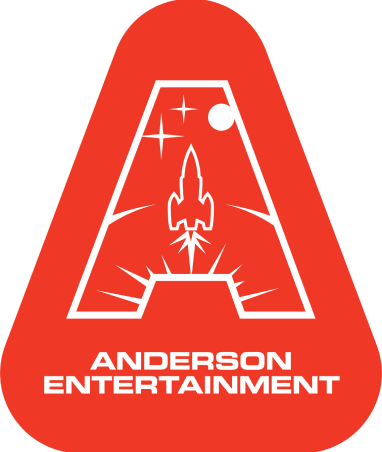"Forgotten” - A Space: 1999 Eagle Diorama

This fantastic Eagle diorama has been making the rounds on the Internet of late. We catch up with its creator, Robert S LePine, to learn more about it.



 So I started my plans for a new lunar camo... it failed...
So I started my plans for a new lunar camo... it failed...

 I needed a new direction, so I started looking on the net for lunar images from the moon landings and an idea that might work. Then it hit me. Some of the geometric camouflage patterns that are used on modern combat aircraft (such as an F-18 in war game colors) gave me another direction and hence the second paint job began. After many hours of masking and painting, masking and painting and did I mention, masking and painting, this was the result and I HATED IT!
I needed a new direction, so I started looking on the net for lunar images from the moon landings and an idea that might work. Then it hit me. Some of the geometric camouflage patterns that are used on modern combat aircraft (such as an F-18 in war game colors) gave me another direction and hence the second paint job began. After many hours of masking and painting, masking and painting and did I mention, masking and painting, this was the result and I HATED IT!
 So here I am with a model that I have waited most of my life for, and I have failed twice. What do you do with a model of this caliber after this many coats of paint? Stripping something like this is a major undertaking - and it really would never be the same, but I couldn’t walk away. So what did I do? I went on social media, Facebook to be exact, and found a friend. Todd Morton and the Space: 1999 - Props and Ships Fan Page. I posted my SCREW UP and one comment (I wish I had this gents name to give him credit) was made about how much this paint job reminded him of how the ship looks like it has just come off the production line and hasn’t made it to the paint shop yet! B I N G O! I have a plan...
Imagine this, an opening sequence for a new motion picture: It has been months since the moon was torn out of Earths orbit on September 13, 1999. The destruction and devastation caused by the changing gravitational fields has left many parts of the Earth in ruin. The current Space Program has been suspended until further notice. All Eagle production has been halted. It seems that all of the Earth's woes have been placed on the shoulders of the men and woman involved in the removal of all of the Nuclear Waste from the planet, which caused the explosion that removed the moon from Earth. A few engineers, scientist’s and one brave Pilot stole the past production Eagle right off the assembly line and hid it away for future generations...
This was not to be - 80 years later, she waits still.... "Forgotten"
I want to make it known that this model was a mistake from day one, nothing went right. However, thanks to comments, inspiration and the fact of how important this kit was to me, I never gave up, and this DIO was an evolution of that NOT GIVING UP!
Okay, that was the introduction, now for the nitty-gritty.
As a pattern maker, I have access to good tools, materials and ways of making almost anything I need for my job, my home and my hobby. This does give me an advantage.
The base of the diorama is 3/4 plywood, with hardwood trim around the outside, sanded, sealed and painted. The floor of the scene is a combination of Lexan, and particle board, to give the concrete illusion I wanted. I also wanted a Lexan base for gluing the building too, hence all the layers. The building structure is all 1 cm cut Lexan. Very strong and very flexible and it works great with any type of good solvent cement! I did my best to try to keep the structure as close to 1/48 scale as I could (years ago I watched and assisted in putting up a building like this). The walls are all sheet styrene, the barrels are Tamiya 1/48 accessories and the little dog came from a ICM 1/48 scale German Luftwaffe Ground Personnel Set given to me by my buddy Greg!
The overall paint was shades of gray! Not going to say 50, but it might have been 30...
The kit was built straight out of the box with no modifications, no lights, nothing...what you see is what you get. Display, basic architectural building techniques, remember use a square and a small level and you can do no wrong. If you have access to Industrial Plastic supply operation WELD ON #3 is what I use for all my model assembly work as it's great on Styrene, Lexan, and most plastics (though I will warn you that it will destroy the old Airfix plastic that was made prior to the mid 1970's).
Ageing has been a process of trying everything, from Enamel blackwash in the tight areas, to acrylic washes overall and then using glass cleaner and Q-Tips to clean up the staining effect. The real secret is using Pastels in black, rust brown and scraping them to powder form, then using any brush you wish rub it on the model where you wish. If there is a problem, glass cleaner will remove it and try again. Dullcoat through your airbrush will seal the pastels to the model and for heavier staining with the pastels, just rub on the model direct from the stick, rubbing down in the direction of gravity with your fingers, Q-Tips, and brush to effect. There's a lot of trial and error, so don't be afraid to just do it and see what happens!
All of the scenery was a combination of toy plants (from the dollar store) Railway Ground Scenic’s, Celluclay, enamel and acrylic paints and yes, twigs and branches from the back yard! And to stick them to the scene? Carpenters Glue, CA glue, both thin and thick.
So here I am with a model that I have waited most of my life for, and I have failed twice. What do you do with a model of this caliber after this many coats of paint? Stripping something like this is a major undertaking - and it really would never be the same, but I couldn’t walk away. So what did I do? I went on social media, Facebook to be exact, and found a friend. Todd Morton and the Space: 1999 - Props and Ships Fan Page. I posted my SCREW UP and one comment (I wish I had this gents name to give him credit) was made about how much this paint job reminded him of how the ship looks like it has just come off the production line and hasn’t made it to the paint shop yet! B I N G O! I have a plan...
Imagine this, an opening sequence for a new motion picture: It has been months since the moon was torn out of Earths orbit on September 13, 1999. The destruction and devastation caused by the changing gravitational fields has left many parts of the Earth in ruin. The current Space Program has been suspended until further notice. All Eagle production has been halted. It seems that all of the Earth's woes have been placed on the shoulders of the men and woman involved in the removal of all of the Nuclear Waste from the planet, which caused the explosion that removed the moon from Earth. A few engineers, scientist’s and one brave Pilot stole the past production Eagle right off the assembly line and hid it away for future generations...
This was not to be - 80 years later, she waits still.... "Forgotten"
I want to make it known that this model was a mistake from day one, nothing went right. However, thanks to comments, inspiration and the fact of how important this kit was to me, I never gave up, and this DIO was an evolution of that NOT GIVING UP!
Okay, that was the introduction, now for the nitty-gritty.
As a pattern maker, I have access to good tools, materials and ways of making almost anything I need for my job, my home and my hobby. This does give me an advantage.
The base of the diorama is 3/4 plywood, with hardwood trim around the outside, sanded, sealed and painted. The floor of the scene is a combination of Lexan, and particle board, to give the concrete illusion I wanted. I also wanted a Lexan base for gluing the building too, hence all the layers. The building structure is all 1 cm cut Lexan. Very strong and very flexible and it works great with any type of good solvent cement! I did my best to try to keep the structure as close to 1/48 scale as I could (years ago I watched and assisted in putting up a building like this). The walls are all sheet styrene, the barrels are Tamiya 1/48 accessories and the little dog came from a ICM 1/48 scale German Luftwaffe Ground Personnel Set given to me by my buddy Greg!
The overall paint was shades of gray! Not going to say 50, but it might have been 30...
The kit was built straight out of the box with no modifications, no lights, nothing...what you see is what you get. Display, basic architectural building techniques, remember use a square and a small level and you can do no wrong. If you have access to Industrial Plastic supply operation WELD ON #3 is what I use for all my model assembly work as it's great on Styrene, Lexan, and most plastics (though I will warn you that it will destroy the old Airfix plastic that was made prior to the mid 1970's).
Ageing has been a process of trying everything, from Enamel blackwash in the tight areas, to acrylic washes overall and then using glass cleaner and Q-Tips to clean up the staining effect. The real secret is using Pastels in black, rust brown and scraping them to powder form, then using any brush you wish rub it on the model where you wish. If there is a problem, glass cleaner will remove it and try again. Dullcoat through your airbrush will seal the pastels to the model and for heavier staining with the pastels, just rub on the model direct from the stick, rubbing down in the direction of gravity with your fingers, Q-Tips, and brush to effect. There's a lot of trial and error, so don't be afraid to just do it and see what happens!
All of the scenery was a combination of toy plants (from the dollar store) Railway Ground Scenic’s, Celluclay, enamel and acrylic paints and yes, twigs and branches from the back yard! And to stick them to the scene? Carpenters Glue, CA glue, both thin and thick.


 For more of Robert's work, check out www.nostromobuilders.ca !
For more of Robert's work, check out www.nostromobuilders.ca !


My name is Robert S LePine and I've been a professional model builder for over 25 years. Employment (yes we still need a day job) at NEOCON International Pattern Shop Assistant (this company makes the All Weather Trunk/SUV Protectors for most automotive manufactures).
My website is www.nostromobuilders.ca - it's old, but I can still update it when I have the time.
My passion for model building began at the age of 4, sitting on my dads lap as he worked away on everything from aircraft to sci-fi! At the age of 10 my life was changed by the sight of the Millennium Falcon escaping the Death STAR in STAR WARS. I had suffered a baseball injury to my knee and I was carried into the theatre just as this moment was happening, the scene had a strong influence on me as a young boy! At that moment, I thought "What the hell was that (The Falcon) and how did it get there?" and I've been pursuing the answer ever since...
Here we are 39 years later - a screwed up paint job, a friend on the net, and an idea that has really inspired more people than I could have ever imagined...
Looking back at how this adventure started, I have to make one confession up front. I knew that everyone would be going bananas doing up their Eagles as great as they could, as accurately as they could, and fast as they could. I walk a different path. I did an old MPC Eagle years ago in a lunar camouflage that I thought really worked.

 So I started my plans for a new lunar camo... it failed...
So I started my plans for a new lunar camo... it failed...

 I needed a new direction, so I started looking on the net for lunar images from the moon landings and an idea that might work. Then it hit me. Some of the geometric camouflage patterns that are used on modern combat aircraft (such as an F-18 in war game colors) gave me another direction and hence the second paint job began. After many hours of masking and painting, masking and painting and did I mention, masking and painting, this was the result and I HATED IT!
I needed a new direction, so I started looking on the net for lunar images from the moon landings and an idea that might work. Then it hit me. Some of the geometric camouflage patterns that are used on modern combat aircraft (such as an F-18 in war game colors) gave me another direction and hence the second paint job began. After many hours of masking and painting, masking and painting and did I mention, masking and painting, this was the result and I HATED IT!
 So here I am with a model that I have waited most of my life for, and I have failed twice. What do you do with a model of this caliber after this many coats of paint? Stripping something like this is a major undertaking - and it really would never be the same, but I couldn’t walk away. So what did I do? I went on social media, Facebook to be exact, and found a friend. Todd Morton and the Space: 1999 - Props and Ships Fan Page. I posted my SCREW UP and one comment (I wish I had this gents name to give him credit) was made about how much this paint job reminded him of how the ship looks like it has just come off the production line and hasn’t made it to the paint shop yet! B I N G O! I have a plan...
Imagine this, an opening sequence for a new motion picture: It has been months since the moon was torn out of Earths orbit on September 13, 1999. The destruction and devastation caused by the changing gravitational fields has left many parts of the Earth in ruin. The current Space Program has been suspended until further notice. All Eagle production has been halted. It seems that all of the Earth's woes have been placed on the shoulders of the men and woman involved in the removal of all of the Nuclear Waste from the planet, which caused the explosion that removed the moon from Earth. A few engineers, scientist’s and one brave Pilot stole the past production Eagle right off the assembly line and hid it away for future generations...
This was not to be - 80 years later, she waits still.... "Forgotten"
I want to make it known that this model was a mistake from day one, nothing went right. However, thanks to comments, inspiration and the fact of how important this kit was to me, I never gave up, and this DIO was an evolution of that NOT GIVING UP!
Okay, that was the introduction, now for the nitty-gritty.
As a pattern maker, I have access to good tools, materials and ways of making almost anything I need for my job, my home and my hobby. This does give me an advantage.
The base of the diorama is 3/4 plywood, with hardwood trim around the outside, sanded, sealed and painted. The floor of the scene is a combination of Lexan, and particle board, to give the concrete illusion I wanted. I also wanted a Lexan base for gluing the building too, hence all the layers. The building structure is all 1 cm cut Lexan. Very strong and very flexible and it works great with any type of good solvent cement! I did my best to try to keep the structure as close to 1/48 scale as I could (years ago I watched and assisted in putting up a building like this). The walls are all sheet styrene, the barrels are Tamiya 1/48 accessories and the little dog came from a ICM 1/48 scale German Luftwaffe Ground Personnel Set given to me by my buddy Greg!
The overall paint was shades of gray! Not going to say 50, but it might have been 30...
The kit was built straight out of the box with no modifications, no lights, nothing...what you see is what you get. Display, basic architectural building techniques, remember use a square and a small level and you can do no wrong. If you have access to Industrial Plastic supply operation WELD ON #3 is what I use for all my model assembly work as it's great on Styrene, Lexan, and most plastics (though I will warn you that it will destroy the old Airfix plastic that was made prior to the mid 1970's).
Ageing has been a process of trying everything, from Enamel blackwash in the tight areas, to acrylic washes overall and then using glass cleaner and Q-Tips to clean up the staining effect. The real secret is using Pastels in black, rust brown and scraping them to powder form, then using any brush you wish rub it on the model where you wish. If there is a problem, glass cleaner will remove it and try again. Dullcoat through your airbrush will seal the pastels to the model and for heavier staining with the pastels, just rub on the model direct from the stick, rubbing down in the direction of gravity with your fingers, Q-Tips, and brush to effect. There's a lot of trial and error, so don't be afraid to just do it and see what happens!
All of the scenery was a combination of toy plants (from the dollar store) Railway Ground Scenic’s, Celluclay, enamel and acrylic paints and yes, twigs and branches from the back yard! And to stick them to the scene? Carpenters Glue, CA glue, both thin and thick.
So here I am with a model that I have waited most of my life for, and I have failed twice. What do you do with a model of this caliber after this many coats of paint? Stripping something like this is a major undertaking - and it really would never be the same, but I couldn’t walk away. So what did I do? I went on social media, Facebook to be exact, and found a friend. Todd Morton and the Space: 1999 - Props and Ships Fan Page. I posted my SCREW UP and one comment (I wish I had this gents name to give him credit) was made about how much this paint job reminded him of how the ship looks like it has just come off the production line and hasn’t made it to the paint shop yet! B I N G O! I have a plan...
Imagine this, an opening sequence for a new motion picture: It has been months since the moon was torn out of Earths orbit on September 13, 1999. The destruction and devastation caused by the changing gravitational fields has left many parts of the Earth in ruin. The current Space Program has been suspended until further notice. All Eagle production has been halted. It seems that all of the Earth's woes have been placed on the shoulders of the men and woman involved in the removal of all of the Nuclear Waste from the planet, which caused the explosion that removed the moon from Earth. A few engineers, scientist’s and one brave Pilot stole the past production Eagle right off the assembly line and hid it away for future generations...
This was not to be - 80 years later, she waits still.... "Forgotten"
I want to make it known that this model was a mistake from day one, nothing went right. However, thanks to comments, inspiration and the fact of how important this kit was to me, I never gave up, and this DIO was an evolution of that NOT GIVING UP!
Okay, that was the introduction, now for the nitty-gritty.
As a pattern maker, I have access to good tools, materials and ways of making almost anything I need for my job, my home and my hobby. This does give me an advantage.
The base of the diorama is 3/4 plywood, with hardwood trim around the outside, sanded, sealed and painted. The floor of the scene is a combination of Lexan, and particle board, to give the concrete illusion I wanted. I also wanted a Lexan base for gluing the building too, hence all the layers. The building structure is all 1 cm cut Lexan. Very strong and very flexible and it works great with any type of good solvent cement! I did my best to try to keep the structure as close to 1/48 scale as I could (years ago I watched and assisted in putting up a building like this). The walls are all sheet styrene, the barrels are Tamiya 1/48 accessories and the little dog came from a ICM 1/48 scale German Luftwaffe Ground Personnel Set given to me by my buddy Greg!
The overall paint was shades of gray! Not going to say 50, but it might have been 30...
The kit was built straight out of the box with no modifications, no lights, nothing...what you see is what you get. Display, basic architectural building techniques, remember use a square and a small level and you can do no wrong. If you have access to Industrial Plastic supply operation WELD ON #3 is what I use for all my model assembly work as it's great on Styrene, Lexan, and most plastics (though I will warn you that it will destroy the old Airfix plastic that was made prior to the mid 1970's).
Ageing has been a process of trying everything, from Enamel blackwash in the tight areas, to acrylic washes overall and then using glass cleaner and Q-Tips to clean up the staining effect. The real secret is using Pastels in black, rust brown and scraping them to powder form, then using any brush you wish rub it on the model where you wish. If there is a problem, glass cleaner will remove it and try again. Dullcoat through your airbrush will seal the pastels to the model and for heavier staining with the pastels, just rub on the model direct from the stick, rubbing down in the direction of gravity with your fingers, Q-Tips, and brush to effect. There's a lot of trial and error, so don't be afraid to just do it and see what happens!
All of the scenery was a combination of toy plants (from the dollar store) Railway Ground Scenic’s, Celluclay, enamel and acrylic paints and yes, twigs and branches from the back yard! And to stick them to the scene? Carpenters Glue, CA glue, both thin and thick.


 For more of Robert's work, check out www.nostromobuilders.ca !
For more of Robert's work, check out www.nostromobuilders.ca !
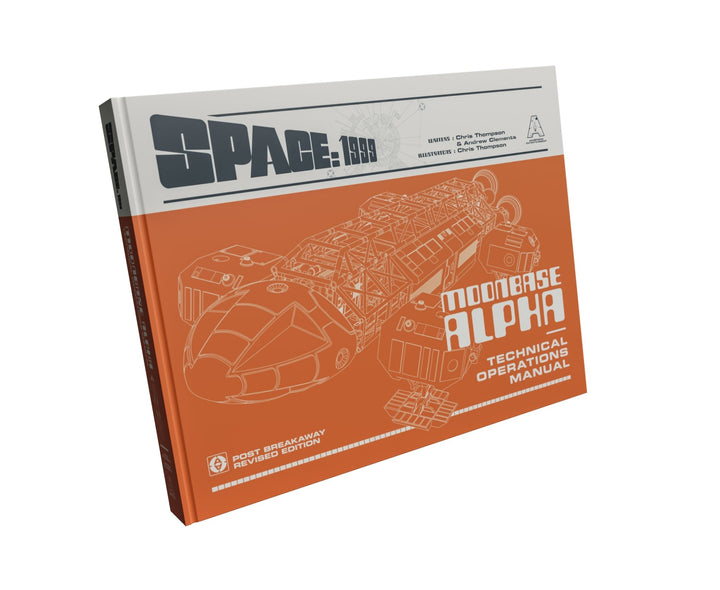
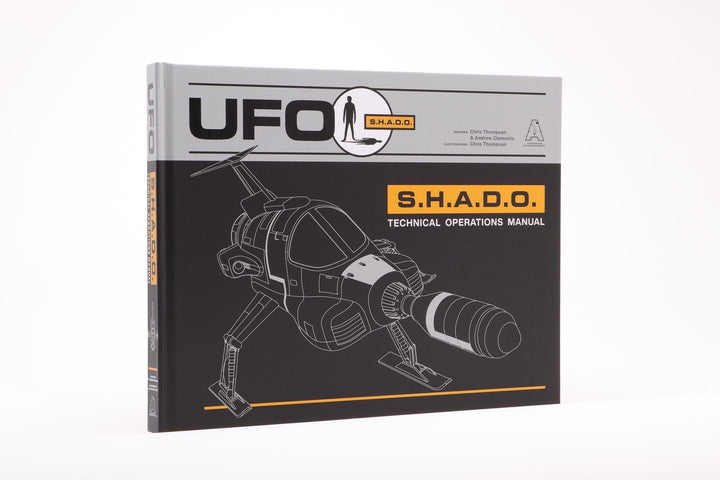

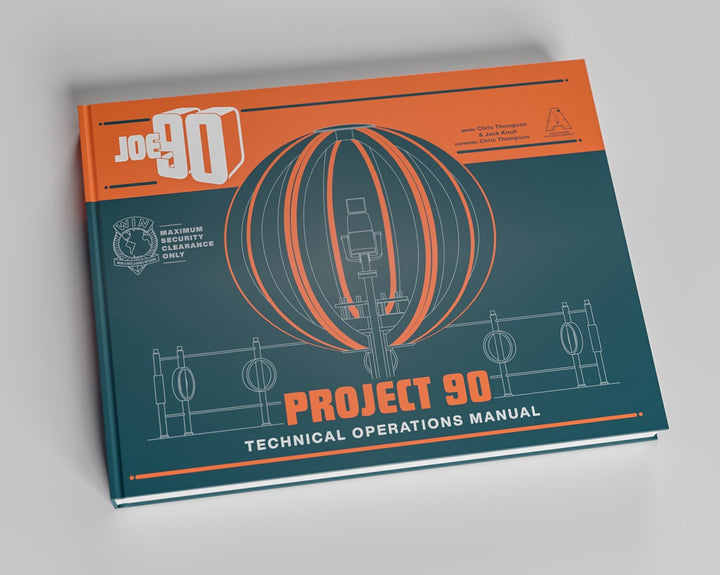
![Thunderbirds Comic Anthology Volume One [HARDCOVER] - The Gerry Anderson Store](http://gerryanderson.com/cdn/shop/files/thunderbirds-comic-anthology-volume-one-hardcover-8030771.jpg?v=1751089031&width=720)
![All Sections Alpha: The Making of Space: 1999 [HARDCOVER] - The Gerry Anderson Store](http://gerryanderson.com/cdn/shop/files/all-sections-alpha-the-making-of-space-1999-hardcover-7498116.png?v=1757766647&width=720)
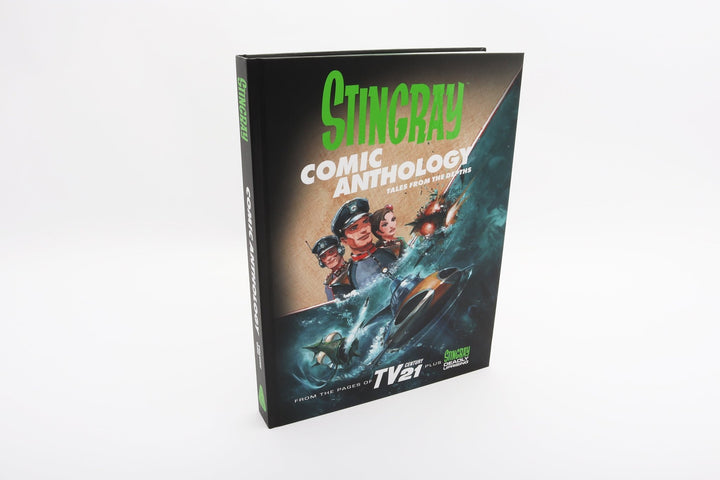
![Stingray Comic Anthology Volume Two – Battle Lines [HARDCOVER] - The Gerry Anderson Store](http://gerryanderson.com/cdn/shop/files/stingray-comic-anthology-volume-two-battle-lines-hardcover-107681.jpg?v=1738856151&width=720)
![Stingray W.A.S.P. Technical Operations Manual Standard Edition [HARDCOVER] - The Gerry Anderson Store](http://gerryanderson.com/cdn/shop/files/stingray-wasp-technical-operations-manual-standard-edition-hardcover-112278.jpg?v=1749664163&width=720)
![Stingray WASP Technical Operations Manual Special Limited Edition [HARDCOVER BOOK] - The Gerry Anderson Store](http://gerryanderson.com/cdn/shop/files/stingray-wasp-technical-operations-manual-special-limited-edition-hardcover-book-991914.jpg?v=1749657538&width=720)
![Stingray: The Titanican Stratagem – Signed Limited Edition [HARDCOVER NOVEL] - The Gerry Anderson Store](http://gerryanderson.com/cdn/shop/files/stingray-the-titanican-stratagem-signed-limited-edition-hardcover-novel-129251.jpg?v=1740558711&width=720)




